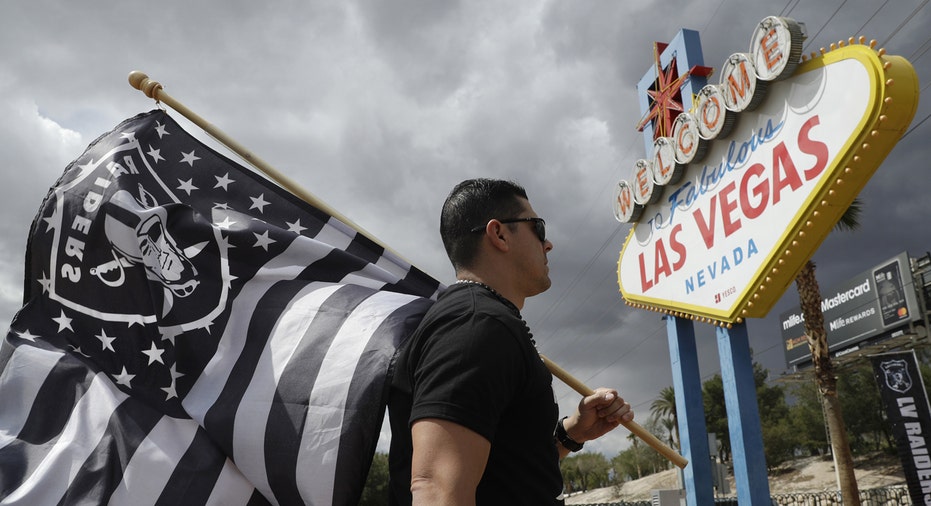Sports Gambling Ban Repeal Could Happen in Trump's First Term, Group Says

As top sports officials and the American public soften their decades-long opposition to legal sports betting, the American Gaming Association, one of the leading advocates for a regulated marketplace for wagers, says that an end to the federal ban on the popular pastime is near.
Both the NHL and the NFL voted to place permanent franchises in the U.S. gambling capital this year, even as they remain opposed to legal betting on their events. The commissioners of the Major League Baseball and Major League Soccer have each called for a reexamination of what a legal regulated market would look like in 2017, while NBA Commissioner Adam Silver has openly advocated for federal legalization. President Donald Trump is a former casino magnate that has expressed support for legalization in the past.
The AGA, which lobbies on behalf of the casino industry, will be one of the groups eventually tasked with presenting the case to repeal the federal ban on sports betting to legislators on Capitol Hill – a development that is still likely years away. But Geoff Freeman, president and CEO of the Washington D.C.-based advocacy group, says his organization has a clear strategy to take advantage of what he calls a “perfect storm” of events that show progress toward legalization.
“This is really happening. There is tremendous demand and tremendous need for a regulated sports betting market,” Freeman told FOX Business. “I think we’re closer than at any point in the past several decades to making that a reality. With that said, there’s a process here. We’re committed to that process, which means working with the leagues and other interested parties to ensure alignment on all the key issues.”
Sports wagering has been illegal in the United States in all but four states since 1992, when federal legislators signed off on the Professional and Amateur Sports Protection Act, or PASPA. At the time, officials from top leagues like the NFL and NCAA argued the measure was essential to protect sporting events and athletes from corruption.
For critics of the push to legalize sports betting, that argument hasn’t changed. The NFL, the preeminent holdout on the subject among sports leagues, remains adamantly opposed to an end to the federal ban. Commissioner Roger Goodell called the potential for a legalized marketplace a “major risk” for the league mere days after its owners overwhelmingly voted to approve the Raiders’ move to Vegas.
"That is a major risk for us," Goodell said at a press conference earlier this month. "I think we have to make sure that we continue to stay focused on making sure that everyone has full confidence that what you see on the field is not influenced by any outside factors. That's our No. 1 concern. That goes to what I consider the integrity of the game, and we will not relent on that."
Silver and MLB Commissioner Rob Manfred, on the other hand, have said they are ready to reexamine the issue.
Manfred told FOX Business in March that MLB is “past the stigma…associated with Las Vegas,” adding that Nevada’s legal gambling market would not be a major factor in determining whether to place a baseball team in the city.
“The fact of the matter is, people can gamble even on sports wherever they want to, we know that. It’s a fact that we all live with,” Manfred said at the time.
There are also signs that the American public is warming up to the idea of a legal market. In November 2016, a poll of more than 1,000 adults by researchers at Fairleigh Dickinson University found 48% supported a change to federal law that would allow states to legalize sports betting, compared to just 39% who opposed the notion.
Proponents of legalization – especially the AGA – say the federal ban has only served to empower illegal operators and offshore sportsbooks. The organization estimates that Americans place $150 billion in illegal wagers on sporting events every year.
While legislators on Capitol Hill will ultimately decide whether to repeal PASPA, Freeman said that conversation is the final step in the AGA’s strategy. At present, the organization is focused on building a coalition of key figures in sports leagues, the gaming industry and the political world that would ultimately strengthen the argument in favor of legalization.
“Our goal here is to make sure the gaming industry, the regulatory community, the leagues – all those that need to be on the same page are on the same page before we go to Capitol Hill. I think that’s the straightest path to victory here, and we’re well down that road,” Freeman said. “In any industry, when you bring an idea to Washington that’s not fully baked, you make it very easy for legislators to do nothing.”
Freeman argues that a regulated marketplace would utilize high-end data analytics to track wagers for any unusual or suspicious activity, which would allow sports leagues to monitor the integrity of their events even more closely. A close study of regulated gaming markets in Las Vegas and overseas in Europe provide a blueprint for how the system could eventually look throughout the United States, he said.
While lawmakers in several states, including New Jersey, are actively challenging the sports betting ban, Freeman says their efforts would only serve to “[empower] an unregulated market.” Instead, the AGA is calling on Congress to repeal PASPA and, potentially, to replace the measure with a framework of minimum standards for regulation. With a federal law in place, states could individually determine whether they want to “opt-in” to the legal marketplace.
“In terms of how quickly can we get PASPA repealed, I think we’re looking at getting that done during the first term of this Trump administration,” Freeman said. “Everything I’m seeing, everything we’re doing and that our allies are doing, leads me to be confident that we can get this done.”



















